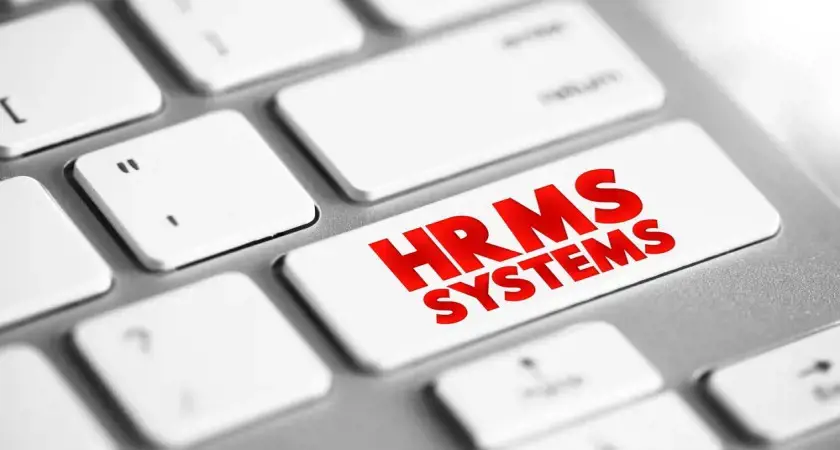Divij Chadha
Human Resource Management System (HRMS) is a strategic tool that has gained considerable importance since it handles most human resource functions.
As businesses grow and evolve, HR technology advances rapidly, bringing new ways to manage the workforce. Several key trends are expected to shape HRMS systems in 2024, making them more adaptive and powerful.
This blog will explore the top 5 HRMS management trends to watch out for this year.
What is an HRMS Management System?
An HRMS (Human Resource Management System) is a software platform designed to manage and automate various HR functions, such as payroll, recruitment, attendance, and employee management. In India and globally, businesses use HRMS tools to streamline operations, reduce manual work, and comply with labor regulations.
One key advantage of HRMS systems is that they free up HR teams to focus on more strategic tasks, like employee engagement and talent development. This is particularly helpful for companies that use RPO outsourcing (Recruitment Process Outsourcing) services, as HRMS systems can efficiently handle the entire recruitment and employee management process.
So, what is RPO in recruitment? It refers to the practice where a business outsources part or all of its recruitment processes to an external provider, allowing the organization to focus on its core operations while leveraging specialized expertise.
HRMS vs. HRIS vs. HCM
HR technology terms like HRMS, HRIS, and HCM are often used interchangeably but serve different purposes.
-
HRMS (Human Resource Management System): This is the most comprehensive system, covering all HR functions, such as payroll, attendance, recruitment, and performance management.
-
HRIS (Human Resource Information System): Focused on storing and managing employee data, HRIS covers payroll and benefits but doesn’t offer the strategic tools in HRMS.
-
HCM (Human Capital Management): HCM emphasizes workforce optimization through talent management, employee development, and workforce planning.
Knowing the difference between these systems can help businesses choose the right one for their needs, whether they manage HR in-house or outsource recruitment and HR functions to an RPO recruitment company.
Top 5 Emerging Trends in HRMS Management System
Now that we’ve covered the basics, let’s examine the top five trends shaping HRMS management in 2024.
1. AI and Machine Learning Integration
Artificial Intelligence (AI) and Machine Learning (ML) transform HR processes. AI-powered HRMS systems can automate repetitive tasks and provide predictive insights, such as predicting employee turnover or identifying top candidates during recruitment.
For example, AI can screen resumes, match job roles with the best candidates, and even help with employee development by recommending personalized training plans. As we move into 2024, AI and ML will become more integrated into HRMS tools, making HR processes more efficient and data-driven.
2. Improved Employee Experience
Employee satisfaction is more important than ever, and HRMS systems focus on improving the employee experience. With features like self-service portals, mobile access, and personalized communication, HRMS platforms make it easier for employees to manage their HR-related tasks.
Employees can access pay slips, request time off, and check performance reviews from one centralized platform. In 2024, enhancing the employee experience through HRMS will remain a priority, helping companies boost retention and engagement.
3. Remote Work and Hybrid Models
The rise of remote work and hybrid models has fundamentally changed how businesses operate. HRMS systems are adapting by offering tools to manage a distributed workforce, including remote onboarding, virtual training, and real-time performance monitoring.
HRMS platforms are also equipped to track productivity, making it easier for HR teams to manage employees working from home or in a hybrid model. As remote work grows, HRMS systems will be crucial in managing a flexible workforce in 2024.
4. Data Security and Privacy
HRMS platforms store sensitive employee data, making cybersecurity a top priority. As data breaches become more common, HRMS providers are adding features like data encryption, multi-factor authentication, and regular security audits to protect employee information.
Compliance with data privacy regulations, such as the General Data Protection Regulation (GDPR), is also becoming a key feature of modern HRMS systems. In 2024, businesses will need HRMS tools prioritizing data security to ensure compliance and protect employee data.
5. Customization and Scalability
No two businesses are alike, and HRMS systems are increasingly offering customization options to meet the unique needs of different companies. Whether you’re a small business or a large enterprise, HRMS platforms are becoming more scalable and adaptable.
Businesses can add or remove features as needed, such as recruitment modules, payroll management, or performance tracking. Customizable dashboards and workflows make it easy for companies to tailor their HRMS to fit their needs. In 2024, expect HRMS tools in India to offer even more flexibility, helping businesses grow without outgrowing their HR systems.
Conclusion
The HRMS world is evolving quickly, and keeping up with the latest trends is essential for organizations looking to stay competitive. AI, employee experience, remote work, data security, and customization are all driving the future of HRMS in 2024.
If your business is looking for a solution to streamline HR functions or considering the benefits of outsourcing recruitment and selection processes, Collar Search can help. As a leading RPO recruitment company, we offer customized HRMS solutions to optimize your HR operations and support your business growth.
Frequently Asked Questions
-
What is an HRMS system?
An HRMS system is software that automates and manages various HR functions, such as payroll, recruitment, attendance, and performance tracking.
-
How does AI improve HRMS?
AI in HRMS automates tasks like resume screening and provides insights, such as predicting employee turnover, making HR processes faster and more efficient.
-
What is the difference between HRMS, HRIS, and HCM?
HRMS is a full HR management system, HRIS is focused on managing employee data, and HCM is centered around workforce optimization and talent management.
-
How does HRMS improve the employee experience?
HRMS systems offer self-service portals, mobile access, and personalized tools, allowing employees to manage HR-related tasks efficiently boosting satisfaction and engagement.
-
Why is data security important in HRMS?
HRMS platforms store sensitive employee data, making cybersecurity critical to prevent data breaches and comply with regulations like GDPR.













